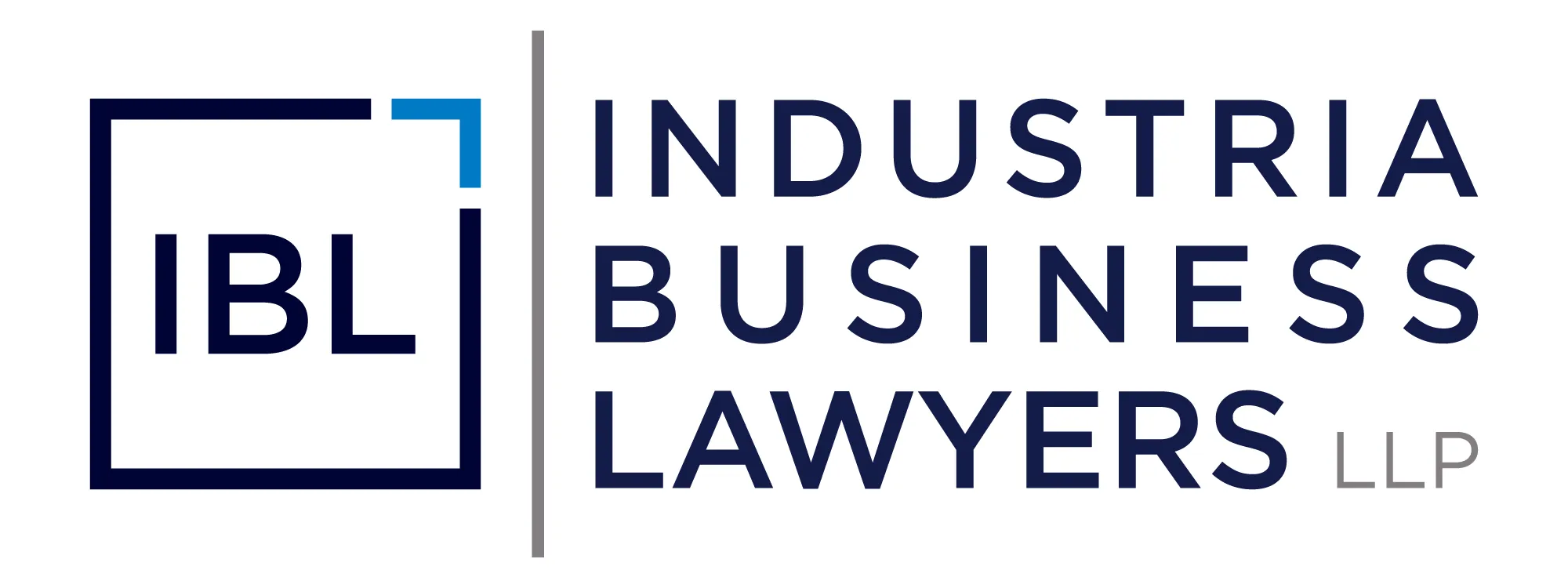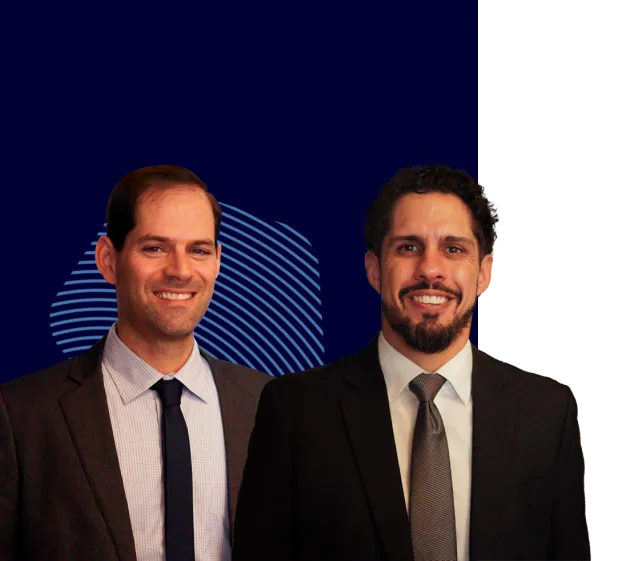The following is an interview between our Business Development Manager, Allys Benitez (AB), and Senen Garcia (SG), Counsel at Industria Business Lawyers, a legal expert specializing in corporate law and tax obligations. Allys and Senen explore his journey to IBL, discuss his role in navigating recent changes in corporate law, and uncover his insights on common misconceptions clients have about tax obligations. They also delve into effective tax planning strategies for businesses, the importance of estate planning, and his passion for environmental conservation.
AB: Tell us about your journey to IBL and your current role
SG: My journey to IBL was really with Alex. We’ve known each other for many years and we happen to partner with a particular client and he really liked the way I worked with that client and decided, ‘I think you need to be part of us.’ So I said, you know what, let’s give it a shot, why not, and it’s been a lot of fun since.
AB: Can you talk a little bit about your current role at IBL?
SG: My current role, and I’ll be honest, I’m not a big guy on titles. I really don’t focus on that, I really just treat it as I’m one of the guys and girls, I’m one of the team. I think, last time I checked, my title is senior counsel, but my role ultimately is the same. It’s to provide great service to the clients, answer any questions, and help the staff with whatever direction they need in terms of getting the work done.
AB: What recent changes in corporate law have significantly impacted your clients?
SG: There hasn’t been a great deal of change, but there was one that happened earlier this summer. That was the elimination by way of the federal government’s position with respect to non-competes. So that’s been an interesting development. It’s caused a lot of companies to have to re-evaluate their roles with their employees—how much information they disclose to those employees because of the fact that there are no more non-competes. Obviously, what we try and do when we’re dealing with clients and their employees is to always try to incorporate some level of trade secret protection and non-solicitation protection, but not all of our clients are very forthcoming with their current status. We understand that it’s usually a budgetary issue. Now, because of that change in the landscape, we really have to hone in and ensure that the company’s secrets, and the company’s abilities to protect individuals from solicitation are in fact input and in place so that the company is still protected.
AB: What common misconceptions do clients have about their tax obligations?
SG: The biggest issue—a lot of misconceptions—is they feel like they don’t have an option; they feel like they have to pay for it, and that’s not true. Ever since the fresh start initiative came about, which was roughly thirty years ago, that is no longer the case. In fact, the Internal Revenue Services, some people have watched a movie called The Pursuit of Happiness; there’s a scene where one day he got all this money that he needed to pay bills, and within not that long, the IRS just outright took it, and that was back in the eighties before the fresh start initiative. Ever since then, the IRS has to go through multiple hoops and hurdles to even get to the position of charging for that or obtaining that money. In addition to that, the IRS is obligated to consider concerns that a taxpayer may have, whether it’s if the debt is actually legitimate, which the IRS does make mistakes, and whether it’s even collectible because maybe you say, I owe it, I have no grounds, I do owe it, but I can’t afford it. We can actually negotiate it. This is not limited to individuals, businesses can do it too. Now, there’s a secondary misconception with respect to tax obligations with businesses that they need to be aware of. That’s with respect to payroll. People think, ‘Oh if I have a business, if I owe any money under that business, I’m not obligated to pay it.’ That is mostly true, but if it deals with the federal government and it deals with tax liability, specifically with employment tax, half of it is paid by the employer, and half of it is paid by the employee. The half that is paid by the employer, yes, okay, fine. If the company can’t pay it, you can walk away presuming you file the formalities, but for that employee portion, the company is acting as an agent for the IRS in collecting that on behalf of the employee. That amount is actually not only held liable to the company but also to the officers who are in charge, so you don’t even have to be an owner to be held personally responsible for that portion. There are still ways to get around that in terms of having to pay it if a company doesn’t have the funds, but you need to be aware that you could be potentially held liable for even business tax debt depending on the type of debt. You can work it out; there can be personal liability, but there are solutions.
AB: What strategies do you recommend for effective tax planning for businesses?
SG: As far as tax planning, definitely it involves doing something early. Start in January, involve it in your budgetary process, and if you don’t have a budget process, implement one. Which tax activities can we start taking advantage of now so that they actually have an impact next year when tax returns need to be filed and prepared? That’s why it is important. A lot of people make the mistake of saying, ‘Oh, ok, well, now it’s time to prepare the tax return. Lets tax plan.’ You can’t; it’s done. The tax year is over; now we have to work with what we have.’ The most important point, the most important suggestion as far as tax planning is concerned, is that it starts on January first of the new year. Start having that budget conversation with someone from our firm. We can actually talk to you and go over what you are planning on doing, and now let’s think about the tax implications and start working out, creating a solution, so we can keep your tax debts or liabilities down to a minimum.
AB: I want to move on to estate planning—what are some key tax implications that clients should be aware of when they are trying to build a well-rounded estate plan?
SG: Talking about tax implications, there are two things you have to consider. There’s obviously estate taxes, and estate taxes are paid by the estate. So if you are a beneficiary, the misconception people have is that I’ll have to pay taxes on anything I receive. That’s not true. The tax is paid by the estate or the donor in the case of gifts. In terms of proper tax planning with respect to estate planning. You need to sit down and go over your entire assets. What do you have in terms of your assets? Are any assets encumbered? Which will have an impact. Maybe you want to start gifting assets now. You can give, as of now, up to fifteen thousand dollars per individual for a year without having to report that. That might be a strategy we have to implement depending on your current circumstances. The best advice given for tax planning is to start it soon, and you need to re-visit it every three years because circumstances change. Estate planning isn’t a one- and-done thing. This is an ongoing approach. Step one is that you want to get with someone from our firm to start sitting down and understanding what your goals are, what your needs are, and what your concerns are, so that we can strategize and map out an estate plan. From there, we revisit it every now and then just to make sure that your goals, needs, and concerns are being addressed as factors and situations change.
AB: So make sure you stay on top of it and do it early.
SG: and periodic review. Very important.
AB: Thank you so much for all of that information. Now we want to move on to a personal question that we ask all of our attorneys. What is your favorite hobby? What do you do outside of law?
SG: What I do outside of law—I do a couple of things. I’m a professor of law, I actually teach at the local university here at Miami-Dade College. I teach at another university in Europe, but that’s more accounting based. I’m also involved with a non-profit. The name of the non-profit is Miami Reef Initiative. We are looking to restore the coral reefs along the county line. About a month and a half ago we got our largest grants approved, so as we speak, we are working on mapping out to actually do what we said we were going to do, which is out planting coral. We are actually already partnering with another organization to make that a reality. We are going to start towards the southern part of the county and hopefully work our way north. It’s actually really exciting. I was one of the founders back in 2018, and we’ve unfortunately had a lot of setbacks. The pandemic definitely was a setback, but we are here, and it’s really exciting. We are looking forward to getting that done, and as we speak, getting divers certified so that they can help us out there, citizen scientists, to help outplant and educate them on the process. We are really excited about that in the future.


